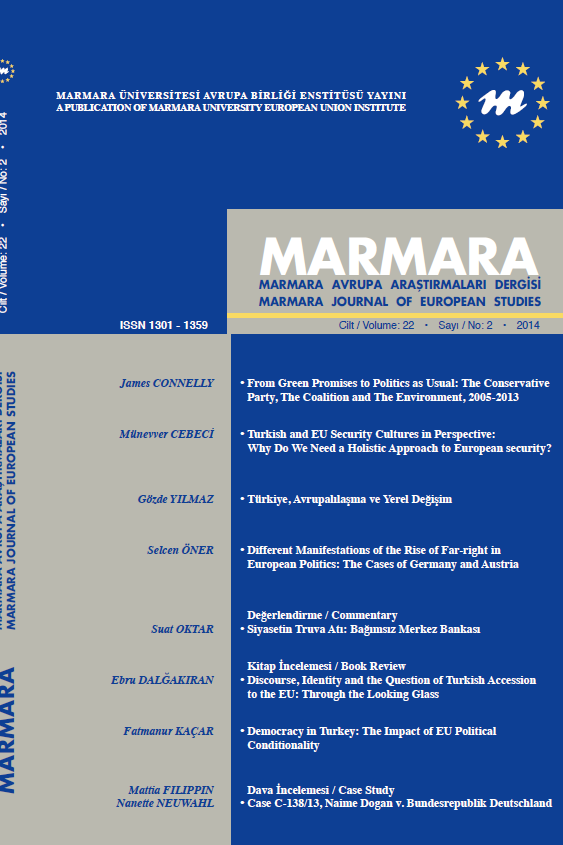MULTICULTURAL EUROPE?*
Starting from the first years of the 21'1 century, multiculturalism has emerged as one of the major research areas in the European political agenda as a result of the challenges to the modernist approach of nation building processes. Considering its various implications, this study shows the two sides of the same coin by focusing on the positive and negative connotations of this concept and tries to answer whether multiculturalism - in a positive sense - is a viable policy in Europe. In this framework, the specific country examples prove the fact that recent multicultural discourses are only used as justifications for the elimination or assimilation ofvarious sub-cultures in Europe by preserving the primacy of the dominant ones. This tendency, however, can easily impose an inward-oriented nature both on Europe as a continent and the EU as a political entity. In order to eliminate this risk, Europe of the 2rr century should be open to other cultural amalgamations and influences as the sources of its own strength and richness
Anahtar Kelimeler:
Çokkültürlülük, Avrupa, azınlıklar, entegrasyon, kültürel çoğulculuk
MULTICULTURAL EUROPE?*
___
- Wallace, C. and Shaw, J. (2002). Education, Multiculturalism and the EU Charter of Rights. Constitutionalism Web-Papers, ConWEB, 5, 1-18. Retrieved: October 31,2008, from http://lesl.man.ac.uk/conweb.
- Watson, C. W. (2000). Multiculturalism. Buckingham: Open University Press.
- ISSN: 1301-1359
- Yayın Aralığı: Yılda 2 Sayı
- Yayıncı: Marmara Üniversitesi
Sayıdaki Diğer Makaleler
IMPACT OF MONETARY AND FISCAL POLICIES ON INCOME INEQUALITY IN EUROPEAN MONETARY UNION
İmre ERSOY, Bilgehan BAYKAL, Pınar DENİZ
ENTEGRASYON SÜRECİNDE DİLİN ÖNEMİ: TÜRKİYE'DEKİ ENTEGRASYON KURSLARI
THE AREA OF FREEDOM, SECURITY AND JUSTICE AFTER THE LISBON TREATY
THE APPLICATION OF NEO(NEO)FUNCTIONALIST THEORY TO JUSTICE AND HOME AFFAIRS
THE EFFECTS OF THE CUSTOMS UNION ON TURKISH HOME APPLIANCE INDUSTRY
